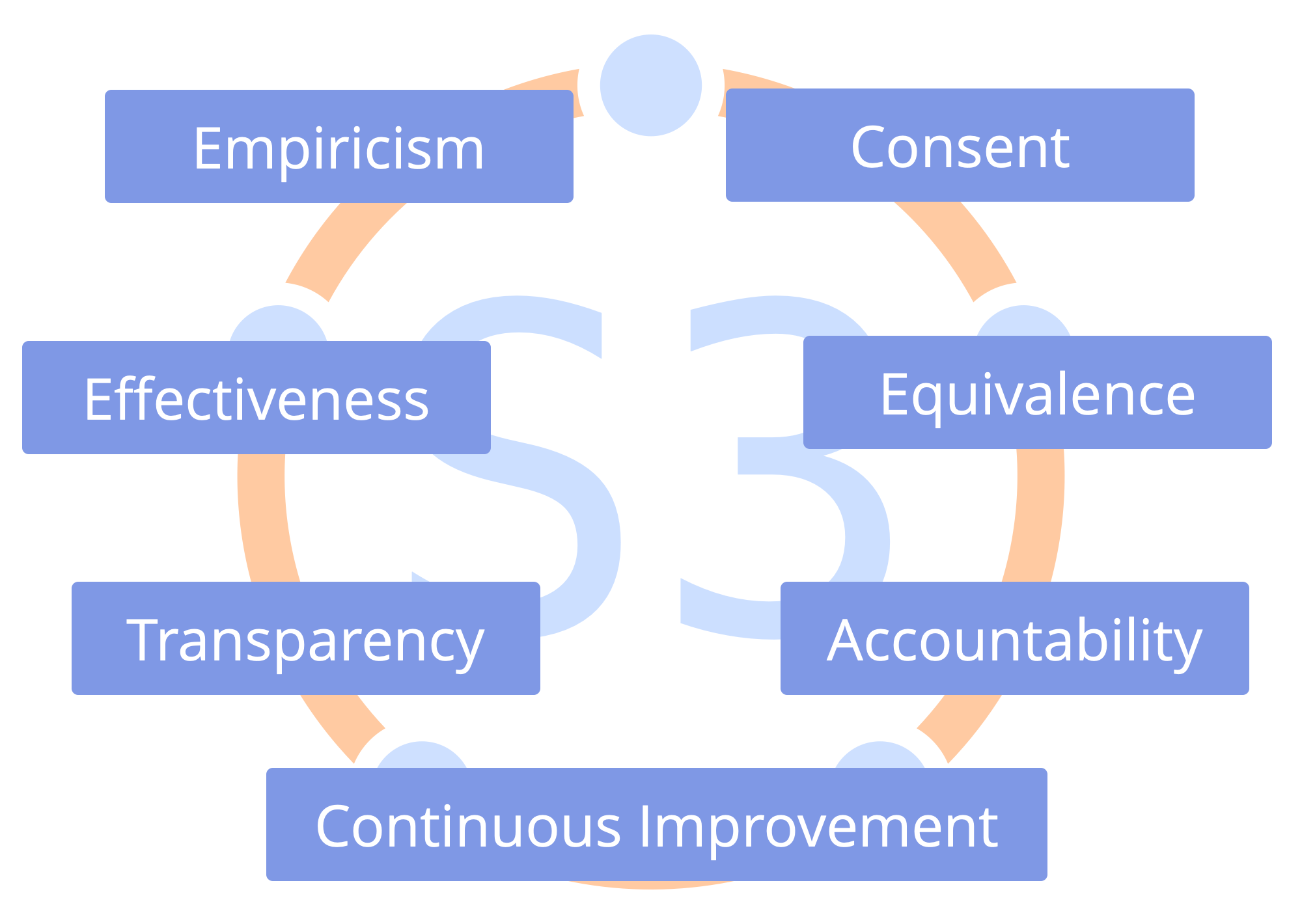The Seven Principles
Sociocracy 3.0 is built on seven foundational principles which enable sociocratic and agile collaboration. Since the seven principles are reflected in all of the patterns, understanding these principles is helpful for adopting and paramount to adapting Sociocracy 3.0 patterns.
Practicing Sociocracy 3.0 helps people appreciate the essential value that these core principles bring – both to individuals and to organizations – and supports their integration into organizational culture.

The Principle of Effectiveness:
Devote time only to what brings you closer towards achieving your organization’s overall objectives, so that you can make the best use of your limited time, energy and resources.
Raise, seek out and resolve objections to proposals, existing agreements and activity, to reduce the potential for decisions leading to undesirable consequences and to discover worthwhile ways to improve.
Test all assumptions you rely on through experiments and continuous revision, so that you learn fast, make sense of things and navigate complexity as effectively as you can.
The Principle of Continuous Improvement:
Regularly review the outcome of what you are doing, and then make incremental improvements to what you do and how you do it based on what you learn, so that you can adapt to changes when necessary, and maintain or improve effectiveness over time.
Involve people in making and evolving decisions that affect them, so that you increase engagement and accountability, and make use of the distributed intelligence toward achieving and evolving your objectives.
The Principle of Transparency:
Record all information that is valuable for the organization and make it accessible to everyone in the organization, unless there is a reason for confidentiality, so that everyone has the information they need to understand how to do their work in a way that contributes most effectively to the whole.
The Principle of Accountability:
Respond when something is needed, do what you agreed to do, and accept your share of responsibility for the course of the organization, so that what needs doing gets done, nothing is overlooked and everyone does what they can to contribute toward the effectiveness and integrity of the organization.